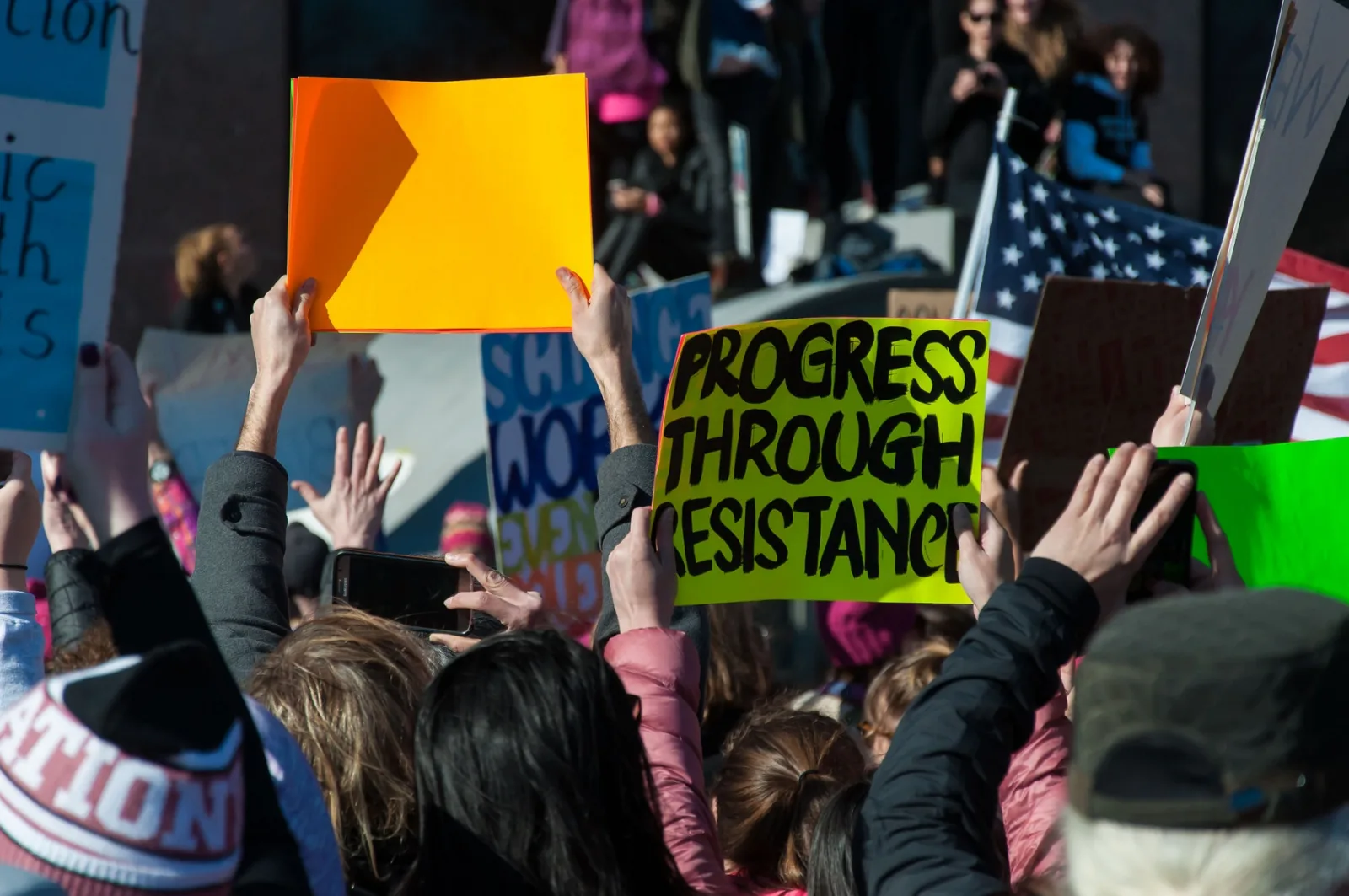The Newberry is building an archive of modern protest that includes the hats, signs, banners, posters, buttons, and other ephemera that blanketed the Women’s March held in Chicago on Saturday, January 21. Crowdsourcing materials from anyone who attended the march (or other demonstrations associated with it), the Newberry invites people across the city to participate in the library’s ongoing preservation of history.
(If you would like to contribute to the collection, please read this quick guide that outlines what we're collecting and how you can get it to us. To submit digital photographs, video, and audio, please visit this submission form.)
Chicago’s march brought an estimated 250,000 people to the streets to express their support for a range of issues believed to be under threat from the Trump Administration.
Before the march, one of several taking place across the country and around the world, the Newberry asked participants to donate the materials they either made or collected over the course of the day.
"We wanted to make sure we were preserving the raw material from what is certainly going to be an evolving landscape of social action,"says Martha Briggs, the Newberry’s Lloyd Lewis Curator of Modern Manuscripts. "We also wanted to encourage everyone to think of their protest signs as worth saving for future generations interested in looking back on how citizens of our time framed pressing political issues and organized themselves for the causes they cared about.”
The items Briggs and her archiving team are collecting are called "ephemera"in the library world. Ephemera comprise an eclectic array of printed and handmade artifacts that are usually thrown away after serving their purpose. But when they are collected and preserved, ephemera can communicate historical information in an immediate, unvarnished way that is rare among polished works of art and literature.
In addition to physical objects, the Newberry will accept digital photographs as part of its archive of modern protest.
The archive is not limited by topic, either. Though the Newberry expects a significant amount of material from the Women’s March to arrive over the next few weeks, Briggs and her team hope to build a repository that includes different voices.
"Since last year, we’ve collected protest ephemera related to the Black Lives Matter movement, using a similar crowdsourcing technique,"says Briggs. "As protests and counter-protests in Chicago continue to surface for or against different causes, we plan to add to our archive and, in the process, represent views from all sides of the political spectrum.”
